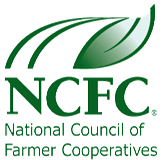
Farmers need to do a better job at connecting with the public when talking about the benefits that biotechnology brings to producers, consumers and the environment, said Joanna Lidback, a dairy farmer from northeast Vermont, today. Lidback, who also keeps a blog documenting her family's life on the farm (farmlifelove.com), testified during a hearing of the House Agriculture Subcommittee on Horticulture, Research, Biotechnology and Foreign Agriculture.
"I believe that biotechnology plays a major role in our collective ability to not only feed a growing global population but also to make individual improvements on our own farms, be it 45 cows or 4500; a row crop operation or an apple orchard; a multiple-generation farm or a beginning farmer," she said. "The science shows that GMOs are safe and bring tremendous benefits, but we in agriculture have failed to communicate this effectively with the public."
Lidback testified on behalf of Agri-Mark Dairy Cooperative and the National Council of Farmer Cooperatives; Agri-Mark is a member of both the National Milk Producers Federation and NCFC.
Lidback also highlighted the impact that being forced to use non-GMO feed would have on the 45 cow dairy farm that she operates with her husband.
"In speaking with our dairy nutritionist earlier this week, he pointed out that the only non-GMO feed he could get us right now was organic. Doing the math, our feed costs would go from $5,160 a month to $11,370 a month; over the course of a year, that means our feed costs alone would increase by $74520," she testified. "I do not see how we could survive, let alone farm profitably, in the long term with those increased feed costs."
Lidback concluded her statement by reiterating the need for producers to engage more with the public on issues relating to agriculture's use of biotechnology.
"I'm happy to continue speaking up for our right to farm in whatever way we choose which in our case includes biotechnology and the use of GMOs. It's important to share my knowledge about the opportunities and challenges we face as modern-day farmers and modern-day parents," Lidback concluded. "When I have one person, or ten people, reach out to me for a question or appreciating my hands-on and practical perspective from the farm, then I have succeeded."
A full copy of the testimony is available online here.
About Agri-Mark
Agri-Mark, with $952 million in 2013 sales, markets more than 300 million gallons of farm fresh milk each year for more than 1,200 dairy farm families in New England and New York. The cooperative is headquartered in Methuen, Mass., has been marketing milk for dairy farmers since 1913, and actively represents their legislative interests in the Northeast and in Washington, D.C. Agri-Mark owns three cheese manufacturing facilities in Vermont and New York State and has a butter/nonfat powder plant in Massachusetts. Agri-Mark has also invested in operations to manufacture and market valuable whey proteins globally while also marketing fresh fluid milk from itslocal farm families to the region's largest dairy processors.
 About NCFC
About NCFCNCFC is a national association representing America's farmer cooperatives. There are nearly 3,000 farmer cooperatives across the U.S. whose members include a majority of our nation's more than 2 million farmers, ranchers and growers. These farmer cooperative businesses handle, process, and market agricultural commodities and related products; furnish farm supplies; and provide credit and associated financial services. Earnings from these activities are returned to their members on a patronage basis. Farmer cooperatives also provide jobs for nearly 250,000 Americans, many in rural areas, with a combined payroll of over $8 billion.
Additional information about NCFC can be found at http://www.ncfc.org.
 About National Milk Producers Federation
About National Milk Producers FederationThe National Milk Producers Federation, based in Arlington, VA, develops and carries out policies that advance the well-being of dairy producers and the cooperatives they own. The members of NMPF's cooperatives produce the majority of the U.S. milk supply, making NMPF the voice of more than 32,000 dairy producers on Capitol Hill and with government agencies. Visit www.nmpf.org for more information.
7.9.2014